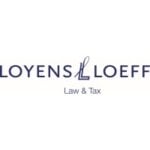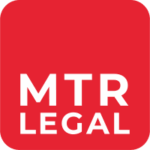-
Is it necessary for a taxpayer to register with the tax authority? Are separate registrations required for corporate income tax and value added tax/sales tax?
In the United States, a taxpayer identification number (“TIN”) is used by individuals. A TIN may be issued by either the Social Security Administration or, if the individual is not eligible to obtain a social security number (“SSN”), by the U.S. Internal Revenue Service (“IRS”). If an individual has an SSN, it must be used for all filings with the IRS. Individuals who cannot obtain an SSN (e.g., certain non-resident or resident aliens, their spouses, or dependents) are required to obtain an Individual Taxpayer Identification Number (“ITIN”) from the IRS.
Newly-formed entities are required to obtain an employer identification number (“EIN”) from the IRS, which is used as an identifying number for tax purposes. Entities required to obtain EINs include not only corporations, but also partnerships, trusts, charitable organizations, and entities disregarded for U.S. federal income tax purposes. A disregarded entity is one with a single owner that is not treated as separate from its owner for U.S. federal income tax purposes. Foreign entities are also required to obtain EINs when they operate in the United States directly (for example, through a branch or a permanent establishment).
There is no U.S. federal value added tax or sales tax, although such taxes can be imposed at the state and local (e.g., city) level. The requirements to register vary state-by-state and are beyond the scope of this chapter
-
In general terms, when a taxpayer files a tax return, does the tax authority check it and issue a tax assessment – or is there a system of self-assessment where the taxpayer makes their own assessment which stands unless checked?
The U.S. tax system is largely based upon voluntary compliance and self-reporting. Taxpayers self-assess their income tax by reporting it on their tax returns, signed under penalty of perjury, which generally stand unless challenged by the IRS. The IRS has access to data provided by other third parties that it uses to confirm the accuracy of a taxpayer’s self-assessment (for example, an individual’s employer will report wages paid or a bank will report interest income earned). Additionally, many large corporate taxpayers are continuously under audit or participate in cooperative programs with the IRS like the Compliance Assurance Process (“CAP”). Taxpayers in these circumstances may see their self-assessments scrutinized more closely and more frequently than other taxpayers.
-
Can a taxpayer amend the taxpayer’s return after it has been filed? Are there any time limits to do this?
Taxpayers represent to the IRS, under penalty of perjury, that their return is true, correct, and complete to the best of their knowledge and belief. That said, there are times when taxpayers may seek to amend their returns. Although taxpayers generally may amend their returns after they have been filed, there is no statutory right to file amended returns, and the IRS is not required to accept or even process amended returns. However, where an amended return represents a claim for refund of taxes previously paid, the taxpayer does have recourse to the federal courts to prosecute the refund claim, even where the IRS declines to process the claim.
Generally, refunds must be filed with the IRS within three years of the filing of the original return (if later, refunds may also be made within two years of the payment of tax sought to be refunded). Different deadlines apply in special circumstances (for example, for refunds involving carrybacks). If the period within which the IRS may assess additional taxes is extended by agreement with the IRS, the period within which a refund may be sought will likewise be extended, plus an additional six months. Amended returns not filed within the applicable period generally will be time barred.
-
Please summarise the main methods for a tax authority to challenge the amount of tax a taxpayer has paid by way of an initial assessment/self-assessment.
The IRS has broad authority and many tools to challenge a taxpayer’s self-assessment. Taxpayers’ returns are reviewed by computer to ensure mathematical correctness and consistency with other data in the IRS’s possession, including information reported to the IRS by third parties. Adjustments may be made automatically based on this review.
The IRS also conducts examinations of taxpayers’ returns in several ways. Most examinations are conducted by correspondence. Correspondence examinations are often limited in scope, and generally do not involve complex issues.
Other examinations are conducted “in the field.” Many field examinations begin as such, but correspondence examinations are sometimes referred to the field examination function (for example, where the issues involved grow too complex). For small businesses and individuals, a field examination may occur in an IRS office (i.e., the taxpayer or its representative is instructed to report to a local IRS facility to discuss the issues). Other examinations of small businesses and individuals, and all field examinations for large businesses, are conducted on the taxpayer’s premises. Depending upon the number of issues and their complexity, a field examination may involve a team of IRS examiners, including technical specialists (for example, economists or valuation experts).
-
What are the time limits that apply to such challenges (disregarding any override of these limits to comply with obligations to relief from double taxation under a tax treaty)?
The IRS must generally assess any additional tax within three years of the filing of the original tax return. This deadline can be extended by agreement with the taxpayer; such agreements are very common in the context of field examinations.
Deadlines longer than three years apply in special circumstances. A six-year period of limitations on assessment applies where the taxpayer’s return includes a “substantial omission of item”. Substantial omissions of items include the omission of gross income from the return in excess of 25 percent of the reported gross income and the omission of gross income from certain foreign financial assets in excess of $5,000.
Where the taxpayer fails to file a tax return, the period of limitations on assessment does not begin to run until a return is filed. Failure to include certain information returns (mostly relating to foreign entities or transactions) with a tax return, or failure to provide all required information, can also prevent the period of limitations from running, even where the rest of the return was timely filed. Where the taxpayer files a fraudulent tax return, or otherwise attempts to willfully evade tax, there is no time limit on making an assessment with respect to that return. In addition, if the IRS issues a statutory Notice of Deficiency to the taxpayer, the statute of limitations on assessment will be suspended for the 90-day period (150 days if the notice is addressed to a person outside of the United States) during which a petition may be filed in the U.S. Tax Court, plus 60 days. If a petition is filed in the U.S. Tax Court, the statute of limitations on assessment is extended to 60 days after the decision of the U.S. Tax Court becomes final.
-
How is tax fraud defined in your law?
The U.S. tax law includes both civil and criminal fraud. Fraud can take many forms, and criminal fraud is just one of several criminal offenses specified in the U.S. tax law. There is no specific statutory definition of tax fraud, but the IRS has defined tax fraud as an intentional wrongdoing on the part of a taxpayer, with the specific purpose of evading a tax known or believed to be owing.
The analysis of both civil and criminal fraud is highly fact-intensive. The IRS looks to both indicators of fraud (for example, unexplained increases in net worth) and affirmative acts of fraud (for example, deliberate or intentional omission of specific items on a return where similar items are included) in analyzing and supporting the applicability of civil or criminal fraud penalties.
-
How is tax fraud treated? Does the tax authority conduct a criminal investigation with a view to seeking a prosecution and custodial sentence?
As noted above, the U.S. tax law provides for both civil and criminal fraud liability. Accusations of civil fraud can result in civil (monetary) penalties being assessed against the taxpayer, while a conviction for criminal fraud can result in criminal fines and imprisonment. A civil examination can lead to the imposition of a civil fraud penalty. It can also lead to a referral to the IRS Criminal Investigation Division where the civil examiners identify indicators or affirmative acts of criminal fraud. However, criminal fraud investigations can also begin independently from civil examinations. Where the IRS determines prosecution is appropriate, it will refer the case to the U.S. Department of Justice, which has the final say in whether criminal charges are pursued.
The primary difference between civil and criminal fraud is the burden of proof that the government must meet. The government must establish civil fraud by clear and convincing evidence. The standard applicable to criminal fraud is beyond a reasonable doubt.
A taxpayer can be both civilly and criminally liable for the same fraudulent conduct. Because the burden of proof for civil fraud penalties is lower than the burden of proof for establishing criminal fraud, the IRS is often successful in applying civil penalties following a criminal conviction for tax fraud, and even when tax fraud prosecutions are abandoned or unsuccessful.
-
In practice, how often is a taxpayer audited after a return is filed? Does a tax authority need to have any justification to commence an audit?
The IRS has broad statutory authority to examine taxpayers’ returns and need not provide any special justification for opening an examination. Nonetheless, the chances of a taxpayer’s returns being examined generally are quite low. According to the most recently published government statistics, the IRS examined just 0.26 percent of all of the just over 200 million tax returns filed for 2020 (the most recent year for which the standard three-year statute of limitations had expired). However, the statistics also show considerable variation in examination rates depending upon the type of taxpayer. For 2020, for example, corporation tax returns were more likely to be examined than individual tax returns (0.67 percent vs. 0.30 percent, respectively). For individuals reporting income of $10 million or more in 2019, the rate was 8.76 percent. And large corporation tax returns were much more likely to be examined than returns filed by other taxpayers: the IRS examined 42.57 percent of 2020 corporation tax returns filed by corporations with balance sheet assets of $20 billion or more.
-
Does the tax authority have to abide by any standards or a code of conduct when carrying out audits? Does the tax authority publish any details of how it in practice conducts audits?
Taxpayers are protected by the statutory “Taxpayer Bill of Rights,” which informs all IRS interactions with taxpayers, including the conduct of examinations. Relevant rights include the right to be informed, the right to quality service, the right to privacy, and the right to confidentiality.
The IRS publishes substantial practical guidance on the conduct of examinations. Much of this guidance is included in the Internal Revenue Manual (“I.R.M.”), which specifies procedures for all aspects of tax administration. The IRS also publishes more discrete and often technical guidance related to the examination of specific issues, industries, etc. Although taxpayers cannot legally “enforce” this guidance and require the IRS to adhere to it, understanding IRS internal procedures can assist taxpayers in navigating examinations.
-
Does the tax authority have the power to compulsorily request information? Does this extend to emails? Is there a right of appeal against the use of such a power?
The IRS has broad authority to request records from taxpayers. The law requires taxpayers to make returns, render statements, and keep records to sufficiently substantiate tax return positions. To the extent that emails substantiate a taxpayer’s tax return position, the IRS has the authority to request emails. Taxpayers must produce such emails unless they are privileged.
The IRS requests information through Information Document Requests (“IDRs”). If a taxpayer fails to respond, or the IRS believes the taxpayer provided an incomplete response to an IDR, the IRS must follow a three-step enforcement process that involves issuing a delinquency notice, a pre-summons letter, and a summons. There are a variety of types of summonses, each with different procedural requirements, including third-party summonses.
Summonses issued by the IRS are not self-enforcing. To enforce a summons, the IRS must request that the Department of Justice seek a district court order enforcing the summons, which the taxpayer may challenge. The taxpayer may appeal an adverse district court decision to the relevant U.S. Court of Appeals.
The IRS’s ability to compel production of information held overseas is more limited. However, a taxpayer who fails to comply with a formal request may be unable to use such documents in a court proceeding regarding the disputed tax. Further, the IRS (and other countries’ tax revenue departments) does have alternative methods of obtaining information, including through the use of tax information exchange treaties with other countries.
-
Can the tax authority have the power to compulsorily request information from third parties? Is there a right of appeal against the use of such a power?
The IRS may seek testimony and records about a taxpayer under investigation from third parties. To do so, the IRS generally must first notify the taxpayer that it intends to contact third parties. Then the IRS can issue third-party summonses. With limited exceptions, the taxpayer identified in the summons must be notified of the summons within three days and no later than twenty-three days before the summons response date. Third-party summonses, like direct summonses issued to the taxpayer, are not self-enforcing. Regardless of whether the summoned party challenges the summons, the taxpayer identified in the summons may attempt to quash the third-party summons in district court to prevent compliance by a summoned third party.
-
Is it possible to settle an audit by way of a binding agreement, i.e. without litigation?
There are a variety of ways to resolve an audit without litigation. The examination team may resolve the audit on the merits of the issues. The examination team generally may not consider hazards of litigation when resolving audits. As such, if resolution cannot be reached with the examination team, the taxpayer may choose to have jurisdiction transferred to the IRS Independent Office of Appeals (“Appeals”). Specific issues may be transferred to Appeals for resolution through a process known as Early Referral without transferring the rest of the case to Appeals’ jurisdiction. In addition to the traditional Appeals process that normally follows an unagreed examination, there are a variety of alternative dispute resolution (“ADR”) options that may be available, including: Fast Track Settlement, Fast Track Mediation, the Rapid Appeals Process, and Post-Appeals Mediation.
Most resolved audits are finalized on a Form 870-series form. Although these forms are not statutorily binding, once executed they are not often challenged. By statute, the only document that can fully bind the IRS is a closing agreement, which is generally reflected on a Form 866, Agreement As to Final Determination of Tax Liability, or a Form 906, Closing Agreement on Final Determination Covering Specific Matters. A closing agreement may only be reopened in the event of fraud, malfeasance, or the misrepresentation of material fact.
-
If a taxpayer is concerned about how they are being treated, or the speed at which an audit is being conducted, do they have any remedies?
The IRS maintains the I.R.M., which provides audit procedures for examination teams to follow. It does not, however, include procedures for remedying misconduct during an audit. Taxpayers are protected by the statutory Taxpayer Bill of Rights, and taxpayers can informally escalate concerns to an examiner’s managers. Additionally, taxpayers can petition the Taxpayer Advocate Service (“TAS”), an independent organization within the IRS focused on improving tax administration, to assist in resolving any procedural missteps by the examiners.
-
If a taxpayer disagrees with a tax assessment, does the taxpayer have a right of appeal?
If the IRS makes a proposed adjustment during an audit, the taxpayer can appeal the proposed adjustment administratively in a variety of ways, including through the traditional Appeals process and through alternative dispute resolution (ADR) programs such as Early Referral, Fast Track Settlement, Fast Track Mediation, the Rapid Appeals Process, and Post-Appeals Mediation. If a resolution is not reached within the IRS audit, Appeals, and ADR processes, taxpayers may litigate in one of three forums, depending upon the procedural stance of the taxpayer’s case.
-
Is the right of appeal to an administrative body (independent or otherwise) or judicial in nature (i.e. to a tribunal or court)?
Generally, taxpayers have both administrative and judicial appeal rights. Taxpayers can appeal administratively, including through a variety of ADR programs referenced above. If a resolution is not achieved administratively, taxpayers can litigate in one of three forums. Where a taxpayer receives a Notice of Deficiency from the IRS, the taxpayer can file suit in the U.S. Tax Court without first paying the deficiency. Alternatively, the taxpayer can pay the deficiency and (after complying with certain administrative formalities) sue for a refund in the U.S. Court of Federal Claims or the district court for the district where the taxpayer resides (or where a corporate taxpayer has its principal place of business). Suit in the U.S. Court of Federal Claims or the district court also is available if the taxpayer files an amended tax return seeking a claim for refund and the claim is either denied by the IRS or not acted upon. Taxpayers can choose to bypass the administrative appeals process, but most do not.
-
Is the hearing in public? Is the decision published? What other information about the appeal can be accessed by a third party/the public?
Administrative proceedings as well as settlements are confidential and subject to Internal Revenue Code Section 6103 confidentiality laws. Conversely, proceedings in federal court are public and open to third parties unless the judge institutes a protective order. For this reason, many taxpayers prefer to resolve disputes administratively to avoid publicity associated with public court filings.
-
Is the procedure mainly written or a combination of written and oral?
The initial IRS examination is generally conducted through a series of IDRs which taxpayers generally respond to in writing, although informal interviews may also be requested. When a taxpayer appeals its case to Appeals, the taxpayer submits a formal written protest. Once jurisdiction transfers to Appeals, proceedings generally are both oral and in writing.
The procedures governing court proceedings are set forth in each respective court’s rules (e.g., Tax Court Rules of Practice and Procedure, Federal Rules of Evidence, Federal Rules of Civil Procedure). All applicable forums require written pleadings, and many cases will involve subsequent written filings. Whether oral proceedings are necessary will vary from case-to-case.
-
Is there a document discovery process?
As discussed above, the IRS requests documents during an examination through IDRs. If the taxpayer does not respond to an IDR, or does not respond to the satisfaction of the IRS, the IRS may choose to issue a summons and pursue compliance through a court proceeding if the taxpayer does not comply with the summons.
There is generally no discovery in Appeals. If Appeals determines that new information or a new issue has been presented by the taxpayer that merits additional analysis or investigation by the examination team, Appeals will generally return jurisdiction to the examination team. If new arguments or theories are presented, Appeals will generally allow Exam an opportunity to review and comment on the information.
There is a formal document discovery process in court proceedings which is dependent on each court’s rules.
-
Are witnesses called to give evidence?
During an audit, the IRS may seek to conduct informal oral interviews with the taxpayer or taxpayer personnel. Witnesses are not generally called to give evidence during an administrative appeal. As discussed above, new information cannot be presented at Appeals without returning jurisdiction to the examination team. However, taxpayers will sometimes bring expert witnesses to Appeals proceedings to present expert reports submitted during the examination or with the protest. During litigation, witnesses can be called to provide evidence, including expert witnesses. The procedures for calling witnesses are specific to each court.
-
Is the burden on the taxpayer to disprove the assessment the subject of the appeal?
By law, Appeals exists to provide a fair and impartial forum to both the Government and the taxpayer, to promote a consistent application and interpretation of, and voluntary compliance with, the U.S. federal tax law, and to enhance public confidence in the integrity and efficiency of the IRS. As such, the burden is not on the taxpayer to disprove the assessment being appealed.
In the U.S. Tax Court, the IRS’s Notice of Deficiency is presumptively correct and the taxpayer has the burden of proving otherwise. In a refund forum, the taxpayer is required to prove its entitlement to the claimed refund. Note that although only the issues underlying the refund claim are at issue in a refund forum, the IRS may raise unrelated issues to offset and reduce the refund amount.
-
How long does an appeal usually take to conclude?
The administrative appeal process can range from several months to over a year or even longer. The duration of an appeal depends on several factors, primarily the complexity of the tax issues being examined. Another factor that can impact the appeal process is the Appeals Officer’s caseload. If the appeal moves to litigation and goes to trial, the process can extend over multiple years before a decision is reached, and appellate review of a trial court decision can also take several years.
-
Does the taxpayer have to pay the assessment pending the outcome of the appeal?
A taxpayer does not have to prepay the tax assessment prior to the conclusion of the administrative appeal.
If the taxpayer chooses to litigate the matter, the taxpayer can choose to file suit in the U.S. Tax Court without first paying the deficiency or can pay the deficiency and sue for a refund in the U.S. Court of Federal Claims or the district court for the district where the taxpayer resides (or where a corporate taxpayer has its principal place of business). Some taxpayers choose to pay the assessment or make a deposit of the contested tax amount even when it is not required to limit interest accumulation.
-
Are there any restrictions on who can conduct or appear in the appeal on behalf of the taxpayer?
In administrative proceedings, taxpayers can only be represented by attorneys, certified public accountants or enrolled agents who are expressly authorized to represent the specific taxpayer. An enrolled agent is an individual who has passed a comprehensive IRS test or certain former IRS employees. The authority to represent a taxpayer is generally granted by filing a Form 2848, Power of Attorney and Declaration of Representative. Taxpayers who cannot afford representation can receive assistance from Low Income Taxpayer Clinics (“LITCs”), which are organizations independent from the IRS. To use an LITC, the taxpayer must show that their income falls below a certain level.
The restrictions differ for litigation proceedings. The U.S. Tax Court requires all representatives for taxpayers to be admitted to practice before the Court. The Tax Court allows a non-attorney to be admitted to practice before the Court if they take and pass an examination. The other forums available to taxpayers have their own rules governing who may represent litigants.
-
Is there a system where the “loser pays” the winner’s legal/professional costs of an appeal?
It is possible, but rare, for a taxpayer to recover costs associated with an administrative appeal. Taxpayers can recover costs back to the date of the first letter of proposed deficiency that allows a taxpayer an opportunity of administrative review in Appeals if the taxpayer “substantially prevails” in the matter. To substantially prevail, the IRS’s position must not be justifiable and must lack a reasonable basis.
To recover administrative costs, the taxpayer must file a request with the IRS personnel who have jurisdiction over the tax matter within 90 days after the IRS’s final determination has been mailed to the taxpayer. The request must be in writing and must include a description of the substantive issues, a statement on why the IRS’s position is not substantially justified, and other additional statements required by the regulations. If the IRS denies the request for administrative costs, the taxpayer may appeal the denial in court.
Similarly, a taxpayer can recover litigation costs from the earliest date between the statutory Notice of Deficiency or the date of receipt by the taxpayer of the notice of the decision of Appeals if the taxpayer substantially prevails in litigation. In the U.S. Tax Court, a party seeking to recover reasonable litigation costs can file a motion to recover fees and costs. The Court of Federal Claims allows the prevailing party to recover costs other than attorney’s fees by filing a Bill of Costs with the court clerk within 30 days after the Court’s final judgement. The ability and procedures to recover litigation costs in district court vary by jurisdiction.
In both administrative appeals and litigations, the costs requested must be “reasonable,” and there are net worth limitations. An individual taxpayer or an estate meets the net worth and size limitations if the taxpayer’s net worth does not exceed $2 million. A business meets the net worth and size limitations if the taxpayer’s net worth does not exceed $7 million, and the taxpayer does not have more than 500 employees.
-
Is it possible to use alternative forms of dispute resolution – such as voluntary mediation or binding arbitration? Are there any restrictions on when this alternative form of dispute resolution can be pursued?
As noted above, there are many alternative forms of dispute resolution available to taxpayers administratively, including Fast Track Settlement, the Rapid Appeals Process, and Post-Appeals Mediation.
In the U.S. Tax Court, ADR is allowed if granted by motion, and both voluntary binding arbitration and voluntary nonbinding mediation are expressly available to the parties, but other ADR techniques are not precluded. Nonbinding mediation is permissible by motion at any time after a case is at issue and before the final decision has been reached. Parties may move jointly or may file an unopposed motion to request resolution through nonbinding mediation. Binding arbitration is permissible when the parties dispute the factual issues in the case. A party can move for binding arbitration and the case will be assigned to a judge for the supervision of any subsequent arbitration. Binding arbitration is very rarely requested or used.
In the Court of Federal Claims, nonbinding arbitration, mediation, “mini trials” (which are abbreviated trials before a settlement judge), and early neutral evaluation are all permissible, but binding arbitration is not. ADR procedures are also generally available in district courts, but the procedures may differ by jurisdiction.
-
Is there a right of onward appeal? If so, what are all the levels of onward appeal before the case reaches the highest appellate court.
All taxpayers have the right to appeal an IRS determination. Taxpayers usually appeal administratively first to Appeals. Appeals is independent of the examination function and, unlike the examination function, has the authority to consider hazards of litigation when reaching settlements. Appeals handles the appeal through in-person conferences, by correspondence, and by telephone (or videoconference).
If a settlement is not reached at Appeals, or a taxpayer chooses not to appeal administratively, the IRS issues a Notice of Deficiency and the taxpayer can appeal to the U.S. Tax Court; however, as noted above, this option is the only pre-payment forum available to the taxpayer. If the taxpayer decides to pay the contested amount, as to avoid accruing interest, the taxpayer may appeal to the U.S. Court of Federal Claims or to any district court with jurisdiction. A taxpayer may further appeal an adverse court decision to the appropriate U.S. Court of Appeals (generally as a matter of right), and from there may file a petition for a writ of certiorari at the Supreme Court of the United States.
-
What are the main penalties that can be applied when additional tax is charged? What are the minimum and maximum penalties?
There are a variety of penalties that may result when additional tax is charged. The most common are accuracy-related penalties. Two common types of accuracy-related penalties are the substantial understatement of income penalty and the negligence or disregard of the rules or regulations penalty. There are additional penalties and additions to tax that may result based on the facts (e.g., a penalty for overstating Section 199A Qualified Business Income Deduction, Failure to File penalties, and Failure to Pay penalties). Penalties can range from 0.5% of the tax (a single month of failure to pay) to 75% of the tax (fraud).
For individuals, a substantial understatement of tax applies when a taxpayer understates their tax liability by 10 percent of the tax required to be shown on a tax return or $5,000, whichever is greater. For corporations other than S corporations, a substantial understatement of tax applies if the corporation understates their tax liability by the lesser of either 10 percent of the tax required to be shown or $10 million. Penalties for negligence apply when the IRS finds that there was no reasonable attempt to follow the tax laws.
In some instances, multiple penalties can apply concurrently. Interest accrues on the penalty amount until the amount owed is paid in full. The date from which interest accrues varies by the type of penalty.
-
If penalties can be mitigated, what factors are taken into account?
There are a variety of penalties that may result when additional tax is charged. The most common are accuracy-related penalties. Two common types of accuracy-related penalties are the substantial understatement of income penalty and the negligence or disregard of the rules or regulations penalty. There are additional penalties and additions to tax that may result based on the facts (e.g., a penalty for overstating Section 199A Qualified Business Income Deduction, Failure to File penalties, and Failure to Pay penalties). Penalties can range from 0.5% of the tax (a single month of failure to pay) to 75% of the tax (fraud).
For individuals, a substantial understatement of tax applies when a taxpayer understates their tax liability by 10 percent of the tax required to be shown on a tax return or $5,000, whichever is greater. For corporations other than S corporations, a substantial understatement of tax applies if the corporation understates their tax liability by the lesser of either 10 percent of the tax required to be shown or $10 million. Penalties for negligence apply when the IRS finds that there was no reasonable attempt to follow the tax laws.
In some instances, multiple penalties can apply concurrently. Interest accrues on the penalty amount until the amount owed is paid in full. The date from which interest accrues varies by the type of penalty.
-
Within your jurisdiction, are you finding that tax authorities are more inclined to bring challenges in particular areas? If so, what are these?
The IRS is more likely to challenge tax returns that involve campaign issues or “listed transactions.” The IRS publishes a list of campaigns on the Large Business and International (“LB&I”) Division website:
[(available here)].
The nearly 50 currently active campaigns cover a wide range of areas. As of August 2025, campaigns impacting corporations include the Business Aircraft Campaign, which addresses reporting requirements by for aircraft usage, and Corporate Alternative Minimum Tax (CAMT), which requires corporate taxpayers to comply with the alternative minimum tax rules of IRC Sections 55 and 56A of the Inflation Reduction Act of 2022. The Business Aircraft Campaign also impacts large partnerships, and high-income taxpayers. Campaigns impacting individuals include the Foreign Earned Income Exclusion Campaign, which addresses taxpayers who claim a foreign earned income exclusion or foreign housing exclusion and the Virtual Currency Campaign, which addresses noncompliance related to the reporting of transactions involving virtual currency.
Other campaigns include: Swiss Bank Program Campaign, Sports Industry Losses Campaign, Offshore Private Banking Campaign, and the SECA Tax campaign, among others.
Further, the IRS maintains a list of “listed transactions” which includes transactions the IRS believes are used by taxpayers to avoid tax compliance. Listed transactions are heavily scrutinized by the IRS and are required to be disclosed on taxpayers’ tax returns. The identified listed transactions change frequently. Examples of current listed transactions include: intermediary transactions; stock compensation transactions; and loss importation transactions.
-
In your opinion, are there any areas which taxpayers are currently finding particularly difficult to deal with when faced with a challenge by the tax authorities?
As noted above, TAS is an independent organization within the IRS focused on improving tax administration. TAS is headed by the National Taxpayer Advocate (“NTA”). The NTA makes an annual report to the U.S. Congress detailing areas of taxpayer concern and opportunities for improvement in U.S. tax administration. The 2024 annual report includes 69 legislative recommendations that TAS believes will assist taxpayers and improve tax administration. Among them are proposed changes to decrease processing times and improve handling of claims relating to employee retention credits for businesses.
-
Which areas do you think will be most likely to be the subject of challenges and disputes in the next twelve months?
The IRS’s authority to assess certain penalties is in dispute. In Farhy v. Commissioner, 160 T.C. 399 (2023), the Tax Court held that the IRS does not have authority to assess the Section 6038(b) penalty (and must proceed through a civil suit to collect that penalty). The D.C. Circuit reversed, holding that the penalty is assessable, and the IRS can proceed through its usual administrative processes. 100 F.4th 233. Under the Tax Court’s precedent, the Tax Court continues to apply its initial decision in cases appealable to other circuits. Mukhi v. Commissioner, 163 T.C. No. 8 (2024); see also Safdieh v. Commissioner, No. 11680-20L (T.C. Dec. 5, 2024). Conflicting rulings could introduce a circuit split and prompt consideration from the Supreme Court.
Further, the due process rights of taxpayers were recently before the Supreme Court in Commissioner v. Zuch, 605 U.S. 422 (June 12, 2025). In that case, the IRS withheld the taxpayer’s refunds and, instead, applied them to a prior debt which the taxpayer was then still disputing in Tax Court. When the disputed debt had been satisfied by the refunds, the IRS argued that the dispute was moot—with the result that the taxpayer could no longer contest the debt in the Tax Court. The Tax Court granted the IRS’s motion to dismiss, thus preventing the taxpayer from disputing the underlying tax debt. The Tax Court’s decision was reversed by the Third Circuit, which recognized that its position was counter to decisions in the Fourth and D.C. Circuits. The Supreme Court reversed the Third Circuit, holding that the Tax Court lacked jurisdiction to address the dispute and that the taxpayer would instead have to proceed in a refund litigation (where possible). The availability of such an alternative avenue for taxpayers in these circumstances is likely to continue to be disputed.
Additionally, in Loper Bright Enterprises v. Raimondo, 144 S. Ct. 2244, 219 L. Ed. 2d 832 (2024), the Supreme Court overturned the deference provided to government regulations that had been established in Chevron U.S.A., Inc. v. Natural Resources Defense Counsel, Inc., 467 U.S. 837 (1984). Although the precise impact of Loper Bright remains to be seen, it is likely that litigants will more frequently and successfully challenge regulations, including tax regulations.
United States: Tax Disputes
This country-specific Q&A provides an overview of Tax Disputes laws and regulations applicable in United States.
-
Is it necessary for a taxpayer to register with the tax authority? Are separate registrations required for corporate income tax and value added tax/sales tax?
-
In general terms, when a taxpayer files a tax return, does the tax authority check it and issue a tax assessment – or is there a system of self-assessment where the taxpayer makes their own assessment which stands unless checked?
-
Can a taxpayer amend the taxpayer’s return after it has been filed? Are there any time limits to do this?
-
Please summarise the main methods for a tax authority to challenge the amount of tax a taxpayer has paid by way of an initial assessment/self-assessment.
-
What are the time limits that apply to such challenges (disregarding any override of these limits to comply with obligations to relief from double taxation under a tax treaty)?
-
How is tax fraud defined in your law?
-
How is tax fraud treated? Does the tax authority conduct a criminal investigation with a view to seeking a prosecution and custodial sentence?
-
In practice, how often is a taxpayer audited after a return is filed? Does a tax authority need to have any justification to commence an audit?
-
Does the tax authority have to abide by any standards or a code of conduct when carrying out audits? Does the tax authority publish any details of how it in practice conducts audits?
-
Does the tax authority have the power to compulsorily request information? Does this extend to emails? Is there a right of appeal against the use of such a power?
-
Can the tax authority have the power to compulsorily request information from third parties? Is there a right of appeal against the use of such a power?
-
Is it possible to settle an audit by way of a binding agreement, i.e. without litigation?
-
If a taxpayer is concerned about how they are being treated, or the speed at which an audit is being conducted, do they have any remedies?
-
If a taxpayer disagrees with a tax assessment, does the taxpayer have a right of appeal?
-
Is the right of appeal to an administrative body (independent or otherwise) or judicial in nature (i.e. to a tribunal or court)?
-
Is the hearing in public? Is the decision published? What other information about the appeal can be accessed by a third party/the public?
-
Is the procedure mainly written or a combination of written and oral?
-
Is there a document discovery process?
-
Are witnesses called to give evidence?
-
Is the burden on the taxpayer to disprove the assessment the subject of the appeal?
-
How long does an appeal usually take to conclude?
-
Does the taxpayer have to pay the assessment pending the outcome of the appeal?
-
Are there any restrictions on who can conduct or appear in the appeal on behalf of the taxpayer?
-
Is there a system where the “loser pays” the winner’s legal/professional costs of an appeal?
-
Is it possible to use alternative forms of dispute resolution – such as voluntary mediation or binding arbitration? Are there any restrictions on when this alternative form of dispute resolution can be pursued?
-
Is there a right of onward appeal? If so, what are all the levels of onward appeal before the case reaches the highest appellate court.
-
What are the main penalties that can be applied when additional tax is charged? What are the minimum and maximum penalties?
-
If penalties can be mitigated, what factors are taken into account?
-
Within your jurisdiction, are you finding that tax authorities are more inclined to bring challenges in particular areas? If so, what are these?
-
In your opinion, are there any areas which taxpayers are currently finding particularly difficult to deal with when faced with a challenge by the tax authorities?
-
Which areas do you think will be most likely to be the subject of challenges and disputes in the next twelve months?



















